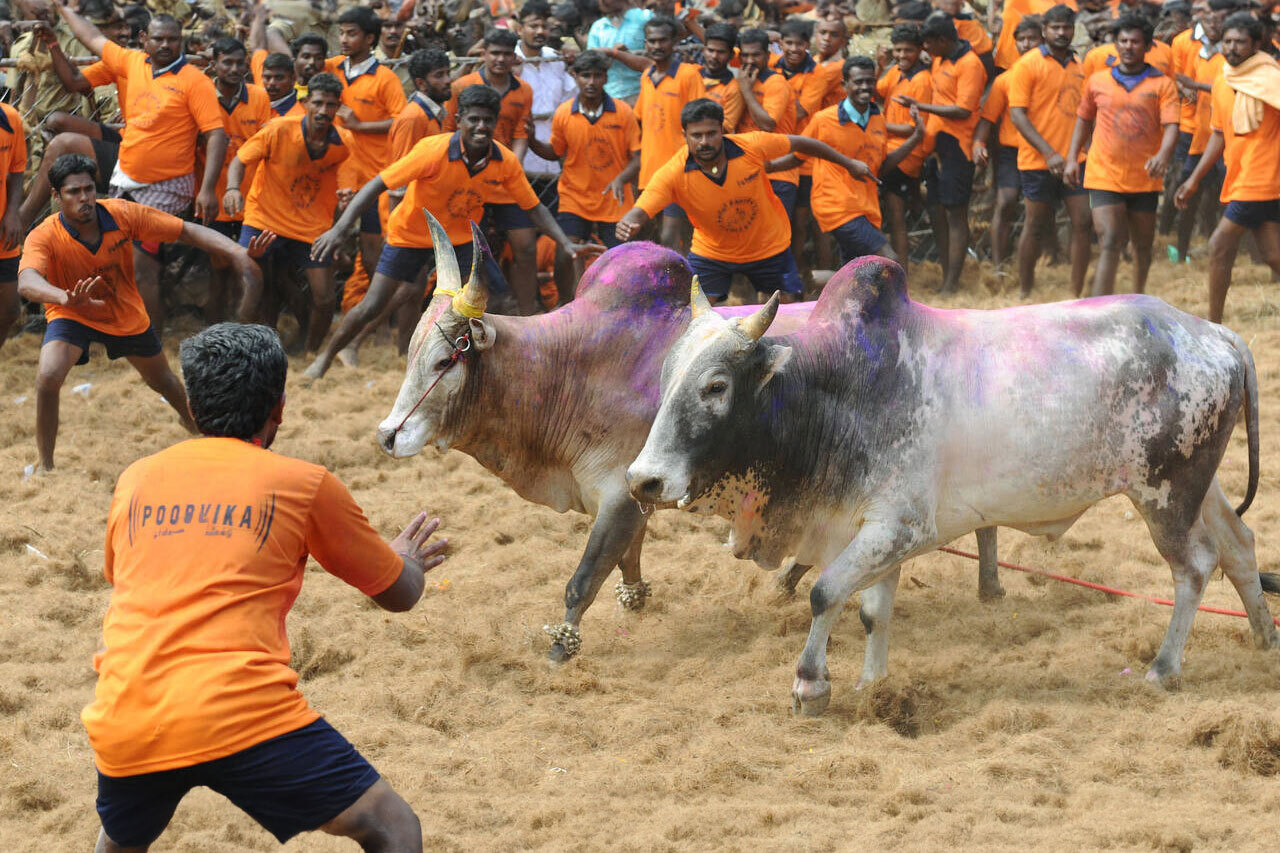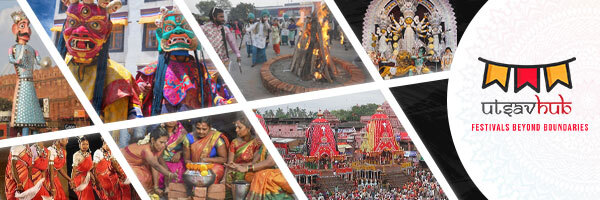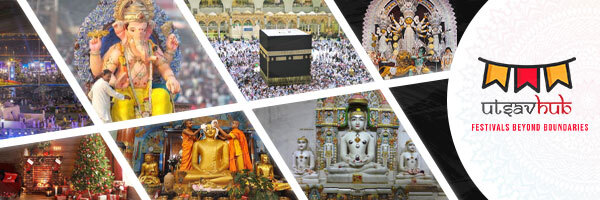
Jallikattu The Ancient Tradition of Bull Taming
- utsavhub.com
- 26 April 2024
- Festival Details
- 0 Comments
Jallikattu, the exhilarating bull-taming festival, is an ancient tradition deeply rooted in the cultural fabric of Tamil Nadu, India. Held annually during the harvest festival of Pongal, Jallikattu is a spectacle of courage, skill, and tradition that attracts participants and spectators from across the region. This traditional sport celebrates the bond between man and animal, embodying the spirit of valour and camaraderie cherished by the people of Tamil Nadu.
Mythology and Significance
The origins of Jallikattu can be traced back to ancient Tamil literature and mythology, where references to bull-taming can be found in ancient texts and poetry. According to local legend, Jallikattu is believed to have originated as a means for young men to showcase their bravery and prowess in front of prospective brides. Bulls, revered as symbols of strength and virility, were central to this ritual, symbolizing the embodiment of divine power.
Jallikattu holds profound cultural and religious significance for the people of Tamil Nadu, serving as a tribute to their agrarian roots and rural heritage. It is considered a sacred tradition, with participants invoking the blessings of local deities for protection and success before engaging in the thrilling spectacle.
Rituals and Traditions
Jallikattu is characterized by a series of rituals and traditions that unfold amidst much fanfare and excitement:
- Bull Preparation: Before the event, bulls are meticulously groomed and adorned with colourful garlands and ornaments, signifying their importance in the festival. Each bull represents the pride of its owner and is revered as a symbol of strength and vitality.
- Man-Bull Encounter: The main event of Jallikattu involves young men attempting to tame ferocious bulls released into the arena. Armed only with their courage and agility, participants strive to grasp hold of the bull’s hump and ride it for a specified distance or time. The challenge lies in the bull’s formidable strength and determination to resist capture, making each encounter a test of skill and nerve.
- Community Celebration: Jallikattu is not just a sporting event but a communal celebration that brings together villagers, families, and spectators from far and wide. The festival fosters a sense of camaraderie and solidarity among participants, who cheer on the daring bull tamers and revel in the electrifying atmosphere of the arena.
- Religious Observances: Jallikattu is often preceded by religious rituals and ceremonies, including prayers and offerings to local deities for blessings and protection. Participants seek divine intervention for a safe and successful event, honouring the spiritual significance of the festival.
- Cultural Extravaganza: Alongside the bull-taming contests, Jallikattu features cultural performances, music, and traditional folk arts that showcase the rich heritage of Tamil Nadu. Artists and musicians entertain the crowd with vibrant displays of dance, music, and storytelling, adding to the festive ambience of the event.
Celebrations in Traditional Times
In bygone days, Jallikattu was celebrated with great fervour and reverence within rural communities across Tamil Nadu. Villagers would gather at local arenas or open fields to witness the thrilling spectacle, cheering on the brave young men as they engaged in feats of daring and skill. The festival served as a symbol of rural pride and solidarity, uniting communities in celebration of their shared cultural heritage and agricultural traditions.
Celebrations in the New Generation
In contemporary times, Jallikattu has evolved into a larger-scale event, attracting participants and spectators from urban centres as well as rural areas. The festival has garnered widespread attention and acclaim, with organizers implementing measures to ensure the safety and well-being of both participants and animals. Efforts are also underway to promote Jallikattu as a cultural heritage and tourist attraction, showcasing the unique traditions and customs of Tamil Nadu to a global audience.
Despite the changes, Jallikattu remains deeply rooted in its cultural and religious significance, serving as a testament to the enduring spirit of Tamil Nadu’s rural communities. It is not merely a sporting event but a cherished tradition that embodies the values of courage, resilience, and camaraderie cherished by the people of the region. Jallikattu stands as a symbol of pride and identity, preserving the rich cultural heritage of Tamil Nadu for generations to come.






